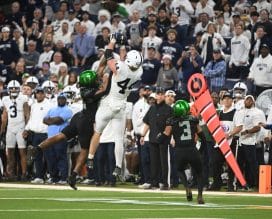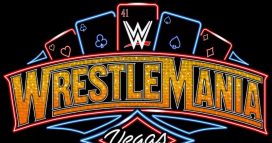Phillies
BASEBALL’S ORIGINAL SIN
It seems as if every few years baseball finds itself in some sort of existential crisis. Today it’s sign stealing, a generation ago it was performance-enhancing drugs, before that it was Pete Rose and gambling, before that it was the fixing of the 1919 World Series. In each instance, turmoil tarnishing America’s National Pastime.
The thing is, none of these crises are or were unique to baseball. Football’s New England Patriots essentially did a few years earlier what the Astros seem to have perfected over the past three seasons, PEDs are right now to the NFL what Gatorade was in the sixties, and gambling and game-fixing have been a part of college basketball seemingly as long as there’s been college basketball. So why is it so much worse when it happens in baseball?
In fact, it’s not worse. At least objectively speaking. But it feels worse because even though baseball has long abandoned its perch as America’s most popular sport it is still, curiously enough, intertwined with our national identity more tightly than all the other sports combined.
The metaphor of baseball as America can be strained and overused but when it shows up in the impeachment trial of an American president, as it did Thursday when New York Congressman Hakeem Jeffries listed baseball, along with apple pie and the Constitution as the three most American things he could think of, you know it’s not based on nothing. And it’s because there’s something to the synergy between baseball and America that everything bad becomes more pronounced and awful when it happens in baseball.
In the late 1940s and early ‘50s the mecca of college basketball, Madison Square Garden, was home to some of the crookedest games in the history of organized sports. At least seven schools were implicated in a multi-year point shaving scandal, including perennial power Kentucky and the only double national champion (NIT and NCAA) in the history of the sport – City College of New York. The scandal was, well, scandalous, and reported breathlessly at the time, with programs and lives ruined in the fallout. Here’s betting you never heard of it. Here’s also betting that you’re not only acutely aware of the 1919 Black Sox scandal but that you can name at least one of the players involved. And here’s also betting that you probably know at least one person who can name several.
The “steroid era” of the ‘90s and early 2000s is a now generally agreed-upon black stain on baseball, its perpetrators shamed, destined to be forever shunned for how they soiled the game. But the same fans who even today can’t stomach Mark McGwire, Barry Bonds and Roger Clemens don’t seem to mind it at all when their football team’s offensive lineman quietly accepts his four-game suspension for ingesting a similar cocktail. PEDs in football have always been, if not accepted, then tolerated as one might a groin pull. Unfortunate when they occur, requiring a few weeks on the sidelines for rehabilitation, and then it’s back on the field as if nothing ever happened.
Why, then, is baseball singularly judged? Turns out, ironically enough, it’s not because it is different. It’s because it is not.
Baseball’s original sin resides in the chasm between what we want it to be and what it in fact is. When it fails it’s not that it fails differently but that it fails in ways that demonstrate that it in fact is no different than any other institution in American life. And there is a special place in Hell for those who so reminds us of this reality (which explains the reaction to Mike Fiers). We castigate baseball for being no different than, say, football; for failing to be better than everything around it. Its sin, then, is America’s: not that it’s the worst but that it failed in its promise to be the best.
Returning to the Black Sox scandal, when he banned the Black Sox from baseball despite their just having been acquitted in a court of law, Commissioner Kenesaw Mountain Landis positioned baseball where he believed it to justifiably reside: above and apart from the scrum of ordinary life. Baseball, Landis was convinced, was better and would conduct itself according to a higher standard. “Regardless of the verdict of juries,” he wrote, “no player who throws a ball game, no player who undertakes or promises to throw a ball game, no player who sits in confidence with a bunch of crooked ballplayers and gamblers, where the ways and means of throwing a game are discussed and does not promptly tell his club about it, will ever play professional baseball again.”
And there you have it. The dirty business of litigation, the side deals, the prejudices of juries wouldn’t be permitted under Landis’s watch to tarnish a game that stood above and apart from all that. Implicit in his words was an acknowledgement of a purity of spirit in baseball that was foreign to boxing, basketball, football, what have you. Baseball was different. Baseball was better.
Of course, it hasn’t lived up to this standard, not by a longshot. How could it? It is, after all, just a game, played by flawed individuals and run by those similarly flawed. No different, really, than boxing, basketball, or football. But baseball’s failures seem bigger and more dispiriting because of the pedestal it claimed for itself and so often lectured from.
The concept of American exceptionalism has taken a similar beating for some time now. The founding document of the nation set it up for spectacular failure, declaring not only that all men were created equal but that everyone was entitled to life, liberty and the pursuit of happiness. Good luck with that. When America fails it’s usually not because it is uncommonly abhorrent but because it shows itself to be no different than its sister nations. All men might have been created equal but they sure as hell weren’t treated that way for centuries. In this, America isn’t unique. It’s just not better.
Baseball will, of course, survive its current moment of crisis just as America will no doubt survive its present calamity. And then we’ll all return to expecting more from both and being profoundly outraged when they reveal themselves to be ordinary once again.





